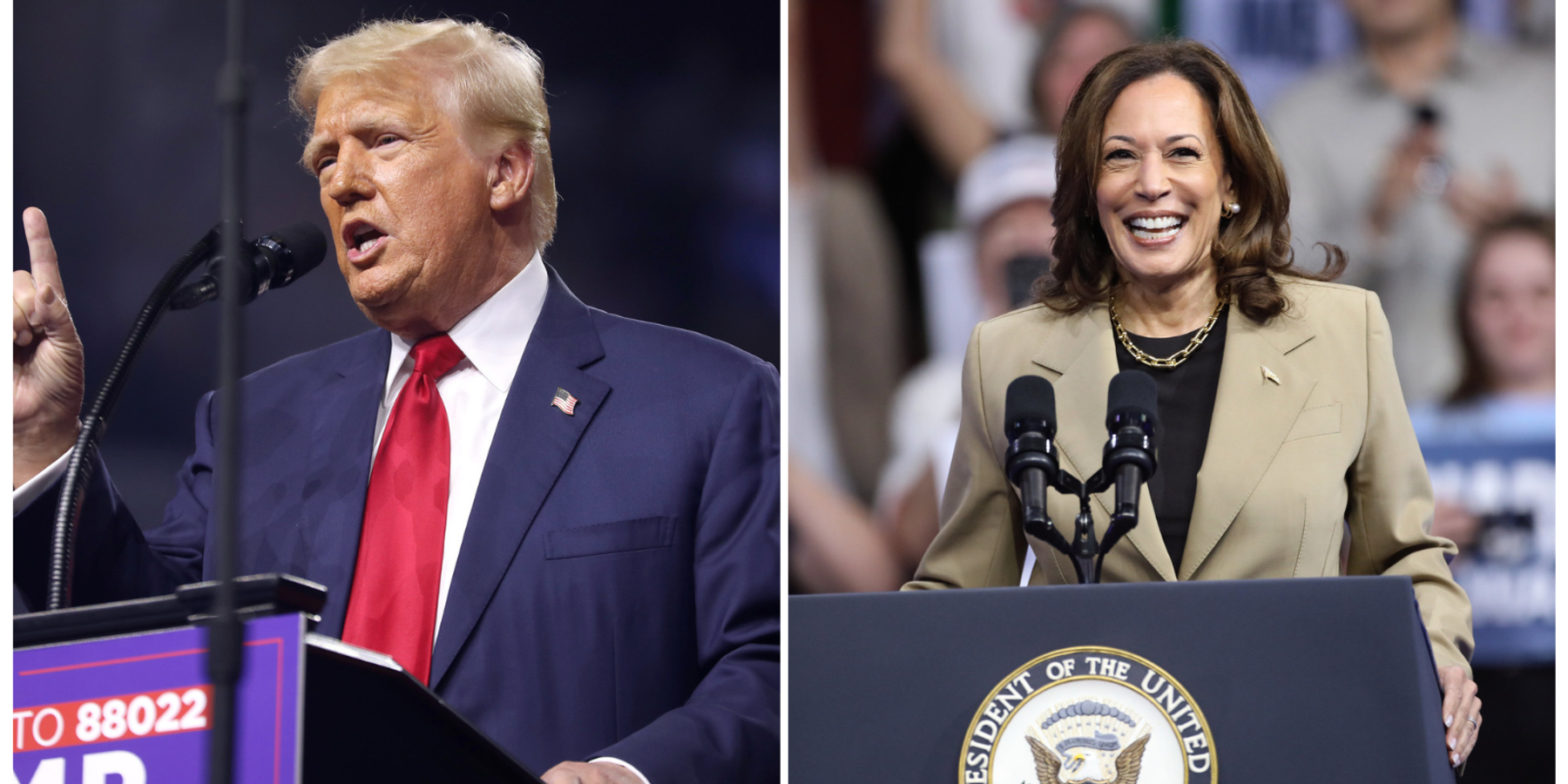
2024 election: Two radically different visions for environment, health
Americans’ choice will have immediate and lasting effects on our planet. Here’s how.
Buckle up, folks: As Americans head to the polls to choose the next president of the United States, the outcome will have acute impacts on our health, as well as our air, water, food and soil.
While the campaigns largely focused on immigration, the economy, reproductive rights and democratic principles, the two major party candidates, Vice President Kamala Harris and former president Donald Trump, represent two wildly different approaches to environmental regulation and health policies. These competing approaches could affect everything from prescription drug prices to greenhouse gas emissions to how much PFAS we’re all exposed to.
We’ve been gathering the top analyses and articles on what this choice means for the near- and long-term U.S. environmental health landscape. Please scroll to the bottom of the article for a rundown of the top news, which we will update throughout the week.
Trump, Harris track records on environment and health
On the campaign trail, Donald Trump has called for a large ramp up of domestic oil and gas production. During his first administration, Trump reduced greenhouse gas regulations on power plants and cars, and took the U.S. out of the international Paris Agreement on climate change. During his campaign, he’s repeated lies about sea level rise and other climate change impacts, and during interviews has downplayed the threats.
Trump also reversed dozens of environmental regulations beyond greenhouse gasses — including 28 on air pollution and eight on water pollution.
In addition, Project 2025 — a policy playbook created by multiple former Trump administration officials at the Heritage Foundation — aims to gut environmental regulations, including removing many current Endangered Species Act protections; repealing the Antiquities Act (which allows for the creation of national monuments); eliminating health-based air quality standards; and reducing community voices in environmental decision-making. While Trump has tried to distance himself from Project 2025, he and his running mate, Ohio Senator JD Vance, have multiple ties to the agenda. Eighteen of the 40 authors and editors of the playbook served in the first Trump administration.
A Trump presidency could reshape federal health agencies and policies as well. With the embrace of former candidate Robert F. Kennedy Jr., the Trump campaign in recent weeks has teased getting rid of fluoride in water and rethinking vaccine programs.
Kamala Harris has signaled a change of heart on fracking, which she once called for banning. However, the Biden-Harris administration brought the U.S. back to the Paris Agreement, and made massive investments in clean energy through the Inflation Reduction Act and Infrastructure Investment and Jobs Act. The League of Conservation Voters has called President Biden the “most pro-climate, pro-environment president” in history, and environmental groups and advocates assume that Harris would continue this trajectory of clean energy investment, greenhouse gas regulation and U.S. involvement on the international stage of climate action. In her former position of attorney general of California, Harris took legal action against multiple fossil fuel companies over environmental violations.
Harris has also put a specific focus on environmental justice throughout her career and as vice president. As a district attorney she created the first “environment justice unit” in the country to investigate environmental crimes in San Francisco. The Biden-Harris administration has passed historic environmental justice initiatives, which mandate that every federal agency take environmental injustice into account in decision making and policy.
Under a Harris administration, experts don’t expect any whiplash to our health policies and agencies. She has made reproductive freedom a top campaign issue, defended the Affordable Care Act and its subsidies and touted the Biden-Harris administration’s successful push to lower Medicare drug prices.
2024 election environment, health news
Our newsroom has been gathering the top articles and information about how these two visions of American environmental health could impact you. As the votes are tallied, we will update this list throughout the week.
Please subscribe to our daily newsletter, Above the Fold, to start your day with the latest environmental news from the U.S. election and beyond.
A Trump win could shift US climate court battles
Trump campaign plans overhaul for EPA's climate policies
Biden’s spending initiatives fail to connect with most voters
In private speeches, Trump ally outlines drastic plans to reshape US government
Trump suggests RFK, Jr. could reshape food and health policies if re-elected
US election could shift direction of plastic pollution policy
Presidential candidates' policies on climate offer starkly different paths
Trump and Harris may shape future PFAS regulations differently
Trump-backed plan seeks to overturn Biden's climate policies
Trump used disaster aid as a political weapon, say former officials
Trump’s potential return sparks fear among federal employees
Listen: Kamala Harris and Donald Trump present vastly different visions for climate action
How US presidential candidates' climate policies could impact food and farming
Trump’s potential return weighs on global climate discussions
Biden's green energy policies are expected to save lives and grow jobs, reports show
Harris links climate action to American values as part of presidential push
Harris stays vague on her energy policies ahead of the election
Trump plans to dismantle climate funding from key law if elected
Harris could prioritize stricter climate policies if elected













